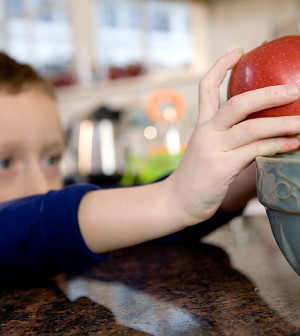- Could Your Grocery Store Meat Be Causing Recurring UTIs?
- Are You Making This Expensive Thermostat Error This Winter?
- Recognizing the Signs of Hypothyroidism
- 10 Strategies to Overcome Insomnia
- Could Artificial Sweeteners Be Aging the Brain Faster?
- Techniques for Soothing Your Nervous System
- Does the Water in Your House Smell Funny? Here’s Why
- Can a Daily Dose of Apple Cider Vinegar Actually Aid Weight Loss?
- 6 Health Beverages That Can Actually Spike Your Blood Sugar
- Treatment Options for Social Anxiety Disorder
Making Friends 101: What Works for College Freshmen

Personality plays a major role in the ability of new college students to make and maintain friendships, researchers say.
To examine how personality affected new friendships, they assessed 273 first-year students at the start of school in Poland and again three months later. In particular, the investigators looked at narcissism and emotional intelligence.
Narcissism — high but undeserved self-regard and a constant desire for self-affirmation from others — was found to be a turn-off. Students with high levels of narcissism were popular at first, but their popularity increased less over time compared to people who were less narcissistic, the study found.
On the other hand, the popularity of emotionally intelligent people increased more over time than the popularity of those with less emotional intelligence.
Emotional intelligence is “the ability to perceive, use, understand and manage emotions,” said the researchers led by Anna Czarna, a social-personality psychologist and researcher at Jagiellonian University in Krakow, Poland.
The study was published online Sept. 27 in the journal Personality and Social Psychology Bulletin.
“Our results suggest that narcissism is rather disadvantageous and that emotional intelligence is rather advantageous for long-term popularity,” the study authors said in a journal news release.
It’s likely that the advantage inherent in emotional intelligence isn’t observable at early stages of relationships, the researchers said. That’s because opportunities to apply emotional skills — such as recognizing other people’s emotional states and giving effective support — might emerge only as the relationship develops, they explained.
More information
The U.S. Centers for Disease Control and Prevention offers college health and safety resources.
Source: HealthDay
Copyright © 2026 HealthDay. All rights reserved.










